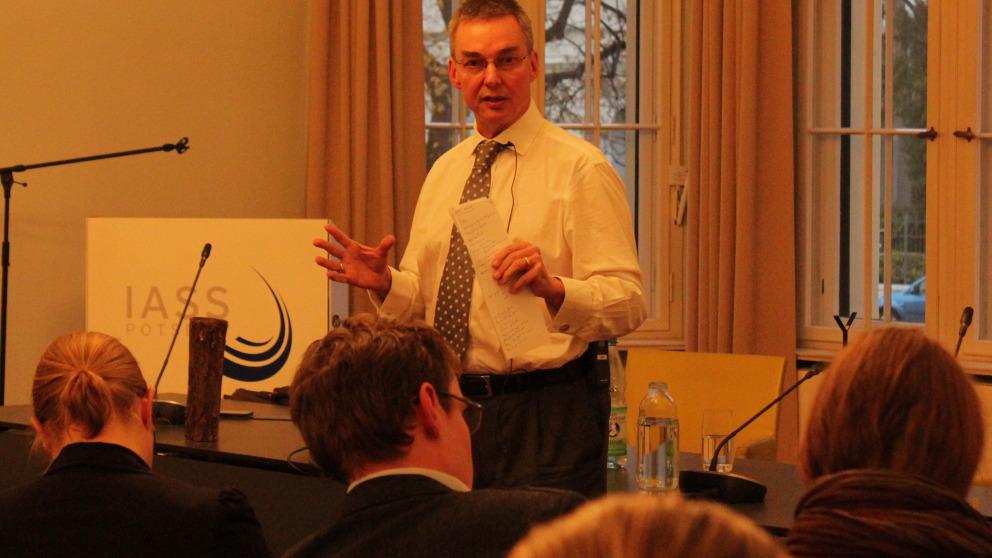Headline:
Going Down the Wrong Path: Climate Expert John Ashton Discusses the Difficult Transition to a Sustainable Way of Life

We’ve known for a long time that our CO2 emissions are too high, that we’re overusing the Earth’s resources, and that we need to change how we produce and consume. But why is it so difficult to take the path to a more sustainable way of life? For John Ashton, former Special Representative for Climate Change at the British Foreign Office and current member of the Transdisciplinary Panel on Energy Change Steering Committee at the IASS, one thing is certain: “The climate problem is a problem in its own right, but at the same time, it’s a window on a deeper set of problems.” In his lecture at the IASS on 12 November, the 58-year-old diplomat claimed that politicians and scientists alike were not committed enough to finding solutions to those problems and were going down the wrong path.

Ashton pointed to several obstacles that must be surmounted on the way to sustainable development. One problem lies in the lack of interdisciplinary exchange among scientists. “We built a very powerful scientific enterprise, but as it grew, it separated out into disciplinary silos.” Even at renowned research institutes, there are very few interdisciplinary projects. Ashton sees another deficit in the scientific approach to reality: many scientists prefer to develop a complex of ideas that are internally consistent rather than checking whether their assumptions accurately reflect reality. In Ashton’s view, this is a regrettable political decision: “If the academy exists for anything, then it is to stand up for the idea that reality is something we can explore and understand.”
But politicians, too, were lethargic when it came to taking comprehensive steps towards sustainable development. For Ashton, the reason for this lies less in lobbies like the oil and coal industry than it does in the widespread belief that it is the market rather that the population that should decide on our future energy supply. With its Energiewende, Germany was a trailblazer, but even in Germany politicians had a credibility problem that made it difficult to proceed down the path to a sustainable society. “Our politics is not in a condition to tell people: this is what sustainable development looks like and we need to expose ourselves to the trials and stresses of this quest.” It’s already clear what steps we need to take according to Ashton. With the exception of aviation, we already have environmentally friendlier alternatives in all principal areas of technology.
Ashton has high hopes for the UN Climate Conference in Paris at the end of 2015. “This is a key moment. After the failure of the 2009 Climate Conference in Copenhagen, we are now finally starting to gain some momentum again with regard to a low-carbon economy and other issues.” Ashton sees the United Nations as the only forum where a legitimate global dialogue on climate change is possible. The world cannot afford another break-down in negotiations.
Photo: © IASS/Bianca Schröder
17.11.2014
